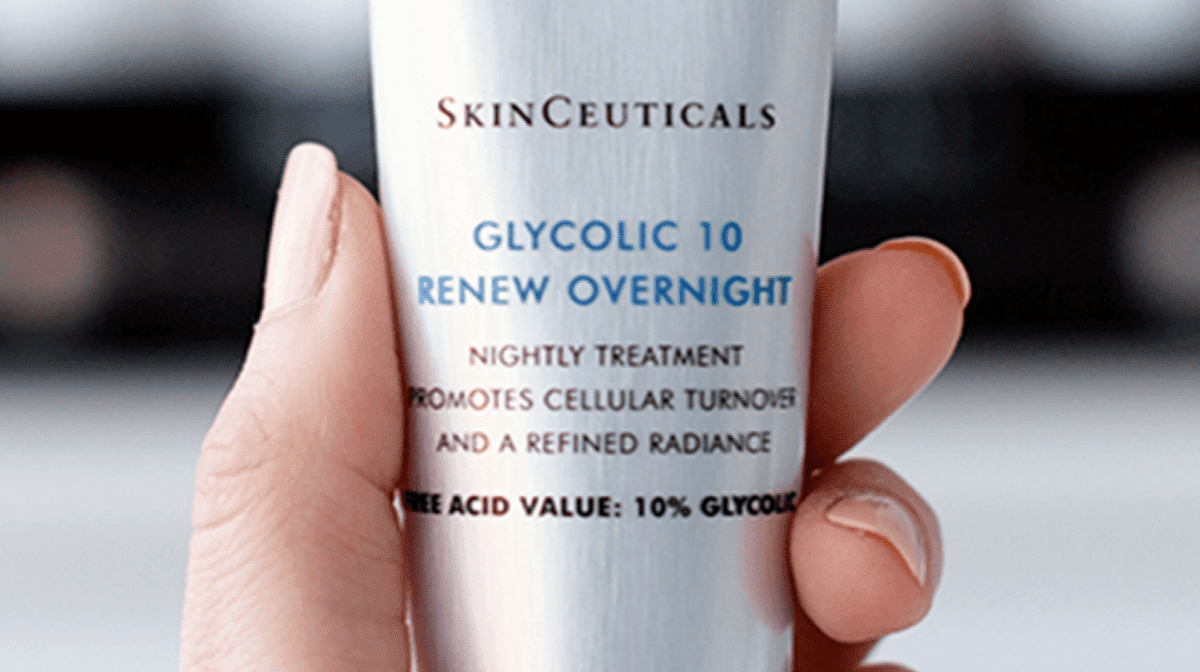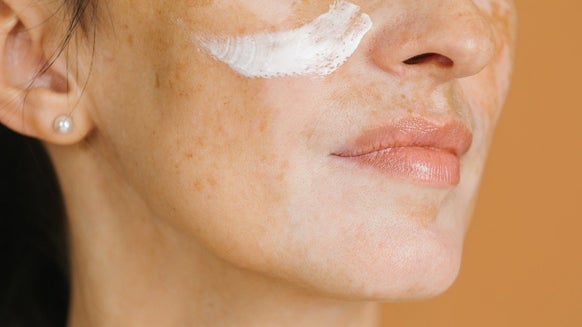Skin Care Acids 101

The world of skin care acids can be confusing, and even scary at first (willingly putting acid on your face can be daunting), but knowledge is power when you’re looking for results. Understanding these ingredients and their far-reaching benefits for different skin types and concerns is the first step towards reaping their honestly incredible and skin-changing benefits. So, consider this your guide to the most common acids and some of our favorite SkinCeuticals products you can find them in.
Glycolic acid
Naturally derived from sugarcane (and commonly synthesized in a lab), glycolic acid is part of the alpha-hydroxy acid family—and perhaps one of the best-known skin care acids. It is an exfoliating ingredient that weakens the “glue” that binds dead skin cells together to promote their natural shedding. Glycolic acid helps eliminate the buildup of dead cells, in turn improving the appearance of fine lines, wrinkles, dark spots, uneven skin tone, dull skin, blemishes and rough surface texture.Find it in: SkinCeuticals Glycolic Renewal Cleanser and Glycolic 10 Renew Overnight.
Salicylic acid
Salicylic acid is a beta-hydroxy acid that provides exfoliating benefits. This ingredient is especially effective for blemish-prone skin because it helps promote the shedding of dead cells on the skin’s surface that can clog pores. It is also oil-soluble, which means it is able to dissolve oil and sebum found within the pores. The exfoliating effects of salicylic acid can also help improve pore visibility, dullness, rough texture, dark spots and uneven skin tone.Find it in:SkinCeuticals Silymarin CF and Blemish + Age Defense.
L-ascorbic acid
The purest form of vitamin C, L-ascorbic acid has been extensively researched and proven to provide myriad benefits for the skin. First, it’s a potent antioxidant that protects the skin from environmental damage, and SkinCeuticals founding scientist, Dr. Sheldon Pinnell, was the first to identify the formulation parameters necessary for an effective vitamin C serum. L-ascorbic acid also provides improvement in visible signs of skin aging such as fine lines, wrinkles and uneven skin tone.Find it in:SkinCeuticals C E Ferulic, Phloretin CF and Silymarin CF.
Azelaic acid
Azelaic acid may be a lesser-known skin care acid, but it certainly warrants a place in the spotlight. This ingredient can be naturally derived from wheat, barley and rye (although it is generally synthesized in a lab for skincare purposes), and while it is not an alpha- or beta-hydroxy acid, it does have exfoliating as well as antioxidant properties. Azelaic acid also offers additional skin benefits such as improvement in the appearance of skin discoloration, acne scars and overall skin clarity, and it is non-comedogenic so it will not contribute to clogged pores.Find it in:SkinCeuticals Phyto A+ Brightening Treatment.
Hyaluronic acid
Hyaluronic acid is one of the most popular (and effective) hydrating ingredients, but it actually isn’t an “acid” at all. In fact, hyaluronic acid is a sugar molecule that occurs naturally in the skin and plays a role in maintaining hydration by attracting moisture to the skin and helping the skin hold on to it. This ingredient is non-comedogenic (which means it won’t clog pores), making it ideal for all skin types. A hyaluronic acid serum can be used as a moisturizer on its own, or layered with other creams and lotions for extra hydration.Find it in:SkinCeuticals H.A. Intensifier, Hydrating B5 Gel, Retexturing Activator and Phyto Corrective Gel.

From the latest hair and makeup trends to the best solutions for your skin issues, we've got all your beauty concerns covered!







